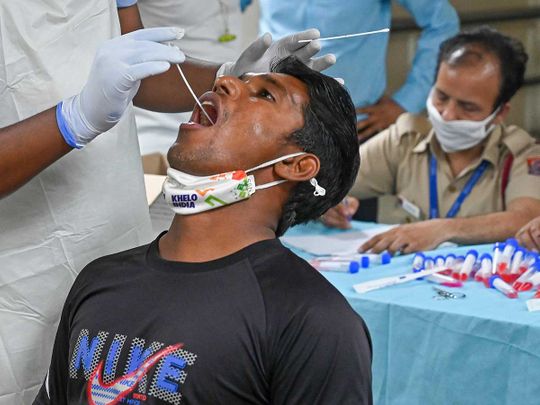Vaccination campaigns are underway to inoculate the population against the emerging coronavirus, but coronavirus mutations continue to cause concern in various countries necessitating additional measures to limit the spread, Al Rai reports.
After discovering a number of mutation Covid variants, most notably the English, South African and Brazilian versions, researchers recently revealed the presence of a new strain called the ‘Double mutant’ Covid variant in India, combining two different mutations in the same virus, and it is believed to have played a significant role in the increase in the pace of the outbreak in India in recent weeks.
While many researchers and scientists in India are conducting research and investigation to monitor the extent of the effect of anti-coronavirus vaccines and their effectiveness in eradicating this new strain, the Indian government announced that analyzing samples collected from Maharashtra, western India, showed an increase in the E484Q and L452R mutations in a section of samples, compared to the rate of increase that was observed last December, denying the existence of a relationship between the new mutations and the high rate of infections in India.
In the same context, the British health authorities announced, in a statement last Thursday that dozens of infections had been detected in the country of a new strain of the virus that was discovered for the first time in India.
In turn, Professor at New York Medical University, President of St. Joseph University Hospital, Dr. Bob Lahita said that mutations in the Coronavirus are expected since the beginning of its outbreak, and that some viruses “mutate several times a year, including the influenza virus, and multiple mutations may change Covid 19 for it is one of the endemic diseases, which means it will require a new vaccine every year.”

















